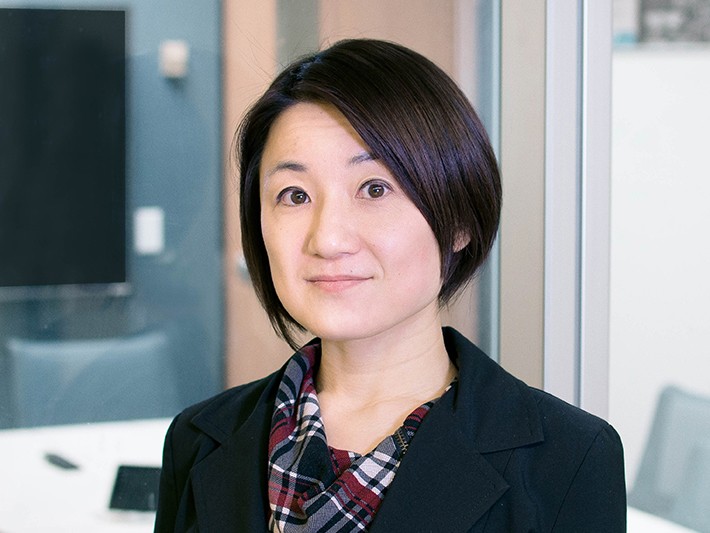
Yukari Seko
Biography
Yukari Seko is an associate professor at the School of Professional Communication and an adjunct scientist at Bloorview Research Institute, Holland Bloorview Kids Rehabilitation Hospital. Before joining ProCom, Yukari completed a CIHR-funded postdoctoral fellowship at the Centre for Addiction and Mental Health and an SSHRC postdoctoral fellowship at the University of Guelph’s Self-Injury and eMental Health Lab.
Research interests
My program of research is grounded on critical theory to address health inequity and advance social inclusion. Much of my work takes a critical narrative approach to inquire the role communication can play in disrupting oppressive systems and in more equitable distributing power.
My research encompasses an eclectic mix of transdisciplinary topics, including immigration and food, ageing, mental health, disability studies, solution-focused communication, and research ethics. I have been trained in, and taught, qualitative and quantitative methods, ranging from arts-informed research, interviews, focus groups, surveys, narrative analysis, and auto-ethnography. However, my expertise always resides in critical narrative inquiry. Much of my work takes a critical narrative approach to research with historically marginalized people in our society, including people with physical and mental disabilities and racialized persons whose voices are frequently engulfed by labels of deviance and/or abnormalities. Listening to people’s lived experience narratives requires careful explorations into their discursive milieu, as people’s stories never exist in a cultural vacuum.
I am passionate about participatory arts-informed inquiry to harness personal stories of differences and have used improvisational dance, Reader’s Theatre, photovoice, and body & hand mapping in my research and teaching. My current program of research encompasses three broad topics: 1) food shaming in the Canadian school food environment; 2) culturally appropriate food and healthy ageing; and 3) solution-focused communication in clinical and non-clinical education/ Check Lunchbox Shaming project blog.
Selected publications (also see ResearchGate (external link) )
* students or trainees
- Seko, Y., Juando-Prats, C., *Wong, V, *Rahouma, L., *Yu, J., & *Henry-Noel, N. (2023). Lunchbox Shaming: Asian Youth’s Recollections of Canadian School Lunchtime. Food, Culture & Society. https://www.tandfonline.com/doi/full/10.1080/15528014.2023.2289238 (external link)
- Seko, Y., Malik, A., *Lau, P., *Neri, D., & Courtnage, A. (2023). Toward solution-focused graduate supervision: Developing research-based live simulations for graduate supervisors. Innovations in Education and Teaching International. http://dx.doi.org/10.1080/14703297.2023.2197872 (external link)
- Seko, Y., Oh, A., Curran C.J., & King, G., (2022). Transitions Theatre: Creating a research-based readers’ theatre with disabled youth and their families. Qualitative Health Research. https://doi.org/10.1177/10497323221138004 (external link)
- Seko, Y. & Kikuchi, M. (2022). Mentally Ill and Cute as Hell: Menhera girls and portrayals of self-injury in Japanese popular culture. Frontiers in Communication.https://www.frontiersin.org/articles/10.3389/fcomm.2022.737761/ (external link)